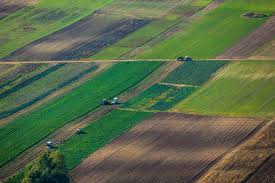The recent 11thsession of the Working Party on Land Administration took place in Geneva late last month. We spoke with Paul van Asperen of the University of Twente regarding the event.
1) Can you give us some background as to your involvement with the Working Party in Land Administration?
I am hired by the Working Party on Land Administration with support from the Norwegian government through Statens Kartverk to carry out a study incosts for registration/transfer of real estate and registration of mortgages for the Economic Commission for Europe (ECE) region.
2) Can you give us some details as to your talking points and issues you will address at the meeting?
This study is about costs and fees from the user's perspective through the application of three typical land administration use cases. The outcomes will enable the member states to compare and evaluate cost levels and costing models and at the same time, related trends in the region will be displayed.
In order to be able to compare the results, the following basic use cases in the domain of real estate transactions are defined as follows:
a) Transfer of a residential dwelling;
b) Establishment of a mortgage for a dwelling covering 100% of the transfer value;
c) Subdivision of an unbuilt parcel of average size in a residential area.
The study distinguishes four costs types to enhance a proper interpretation of the responses:
a) Legal/technical services (e.g. collecting preliminary documents, contract/deed drafting and signing);
b) Registration services (e.g. registration of contracts/deeds/titles);
c) Taxation (e.g. transfer tax, stamp duties);
d) Cadastral services (e.g. parcel surveying, updating cadastral map and register).
3) What do you think the role of land professionals is in the SDGs?
As land relates to many SDGs, land professionals should be aware of these SDGs in their daily work. Ambitions are high, so we have to be innovative and flexible, work interdisciplinary and collaborate across sectors. I believe governance and mutual trust between stakeholders are key, so we should address and advance these issues on a continuous basis.


